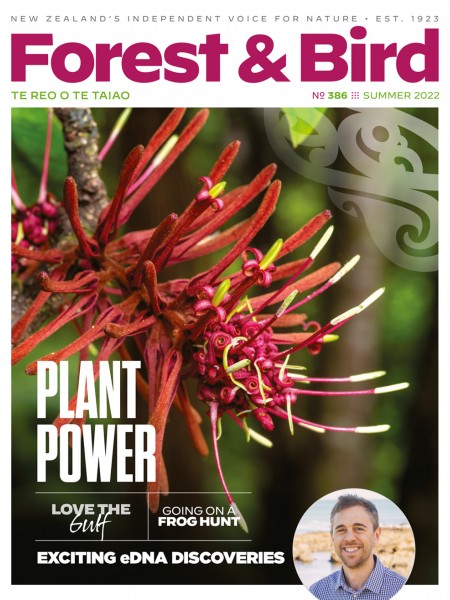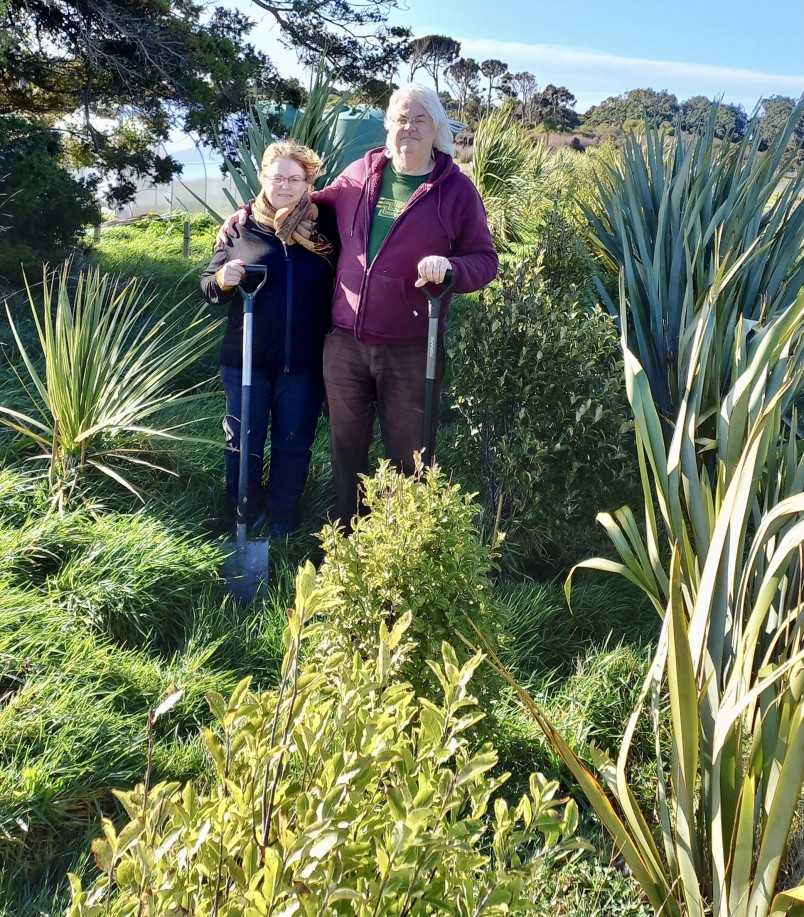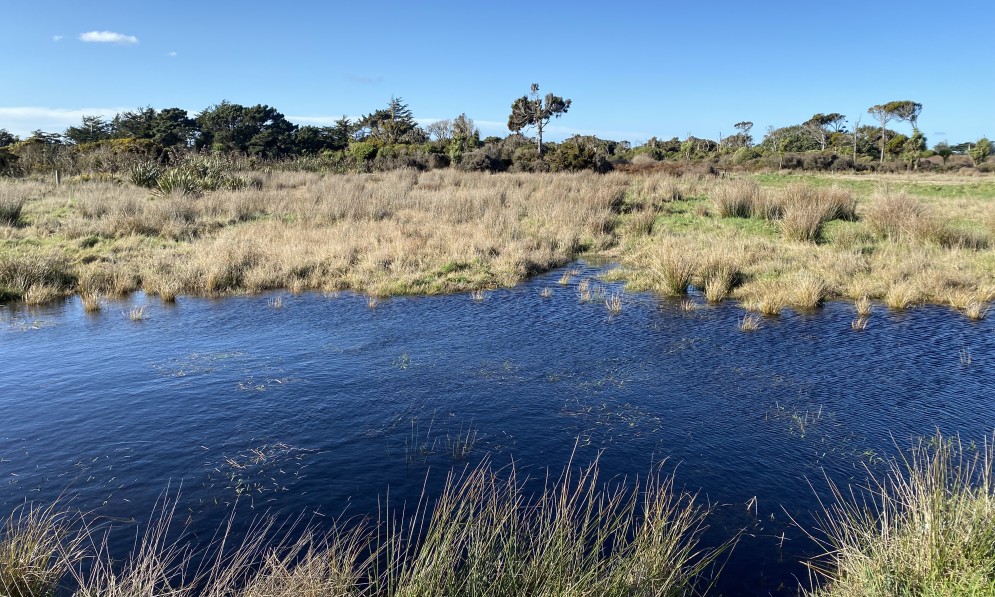Leaving a bustling city for life in the country, a former Wellington couple is busy restoring the bush in their new backyard. By David Brooks
Andrea and Kevin Maloney want to see nature restored throughout Aotearoa and are demonstrating their commitment by donating monthly to Forest & Bird while also restoring their own little corner of the country at Otatara, near Invercargill.
Forest & Bird magazine
A version of this story was first published in the Summer 2022 issue of Forest & Bird magazine.

Andrea first joined Forest & Bird as a teenager, determined to join the fight to save the kōkako. Her own mother, Mary Broughton-Webb, was also a young conservationist, winning a Forest & Bird national award in 1954 at the age of 17 for an essay on why forests and birds need to be protected.
About five years ago, the Maloneys bought 3ha of land, about half of which was remnant bush and the rest in pasture, on a Southland peninsula dotted with housing, dairy farms, and patches of bush.
Most of their property is covenanted under the QEII National Trust, which helped them draw up a plan to ensure the health of the bush and restore most of the pasture into ephemeral wetlands.
The remnant bush includes tōtara, kahikatea, rimu, miro, climbing fuschia, muehlenbeckia, and a diverse understorey, attracting many native birds.
They started by landscaping to restore wetlands, trapping, and establishing a shelter belt. All this work was made harder by having to make flying visits to their land from their Wellington home.
Last summer, the Maloneys took the plunge and moved to their newly built home on the property with their two children Nicholas and Lee.

Andrea and Kevin Maloney. Image supplied
Andrea is a hydrogeologist and Kevin is an IT architect, and they are able to work remotely from their new home.
“We count ourselves very lucky we could move out of Wellington to a place with a chunk of land to look after and take our jobs with us. We’re at least as productive here, and healthier and happier,” says Kevin.
Andrea had to give up her second job as a landscape designer to focus on the restoration. “I don’t miss the landscaping because I’m doing so much work here. I want to use my energy here,” she says.
They plan to put in another 3000 plants on the property, many of which are sourced from the nearby Southland Community Nursery, run by Forest & Bird members Chris and Brian Rance. Andrea volunteers at the nursery on Friday mornings when work commitments allow.
“I think the kids would say I’m crazy about birds. But it’s biodiversity in general really. That’s why we support Forest & Bird. We just want to help, along with so many other people, to right the balance,” Andrea says.
A couple of years ago, Andrea told Kevin her dream was to one day see a heron in their wetland pond.
Earlier this year, she saw a white heron, probably a little egret, foraging in the pond. It was then Andrea knew their hard work was paying off.
World Wetlands Day
World Wetlands Day is celebrated each year on 2 February to raise awareness about wetlands. This day also marks the anniversary of the Convention on Wetlands, which was adopted as an international treaty in 1971. The World Wetlands Day awareness campaign is organized by the Secretariat of the Convention on Wetlands. Contracting Parties of the Convention on Wetlands have been celebrating World Wetlands Day since 1997, when it was first established.
On World Wetlands Day in 2022, Forest & Bird launched the Every Wetland Counts – He Puipuiaki Ia Rohe Kōreporepo. The campaign has six asks of Government including to double natural wetland extent by 2050. An oral submission supporting these asks is scheduled to be presented to the Environment committee in 2023.

